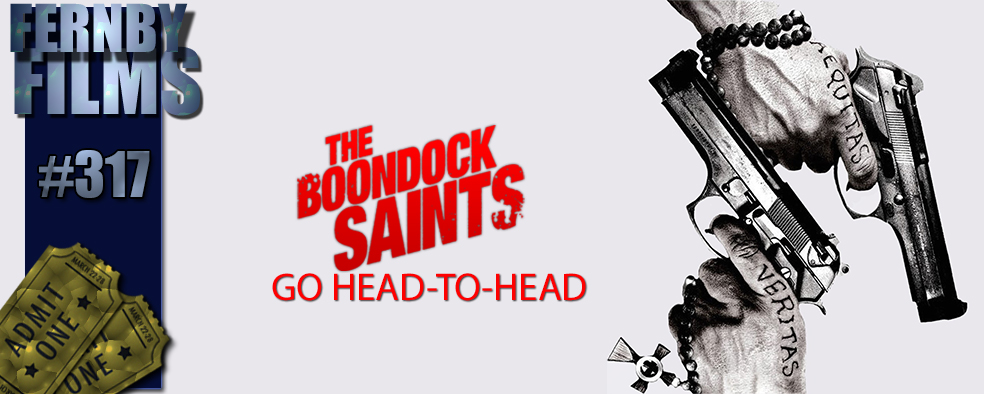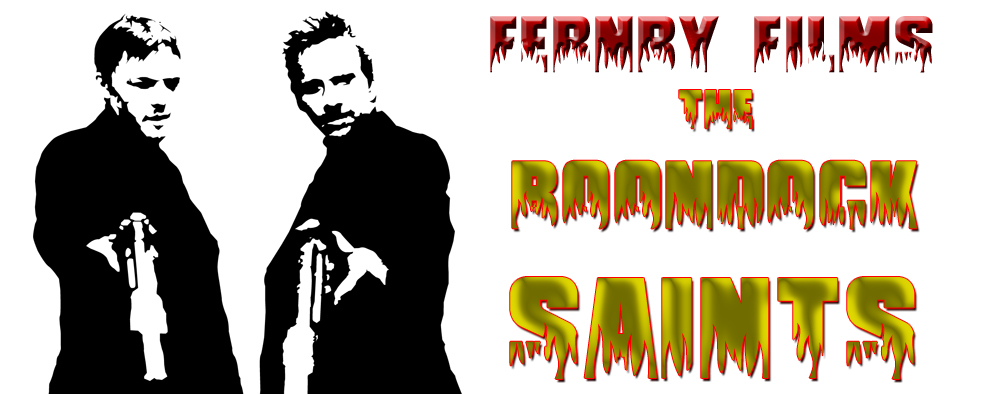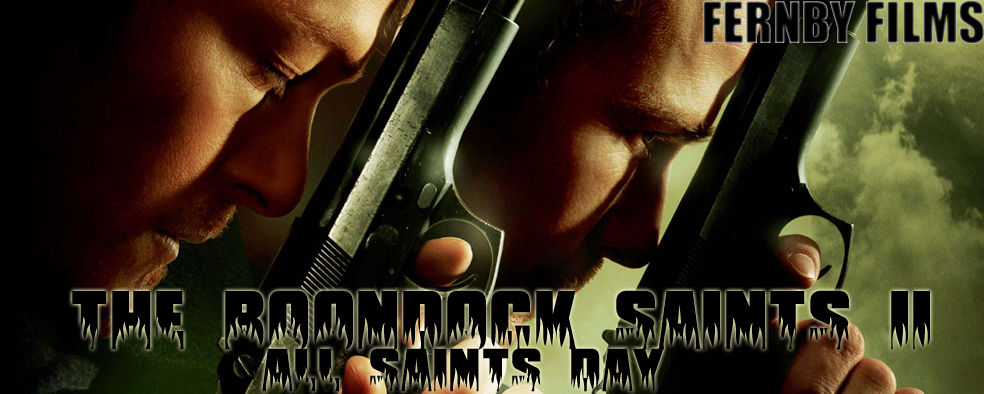Movie Review – Battle Of The Boondocks – The Saints Go Head-to-head!!!
This article was originally published on moviesmackdown.com, and you can follow the link to it here. We’ve modified it from that original post, which can be read below.
Vigilante justice is always a divisive issue. When crime is committed, often the most vile and reprehensible, and our justice system appears to be unwilling to take a hard stance against it, people often feel like taking matters into their own hands, to seek their own brand of justice instead. Many films have tried examining this duality of humanity: the desire to see justice done where it appears not to have been meted out, against the rule of common law and our conditioning to uphold it. Such deep and meaningful issues are very rarely taken lightly by cinema these days. So when we sit down to watch The Boondock Saints, it appears that the trend towards socially meaningful, morally forthright and restrained discussion of said topic is the last thing director Troy Duffy intended. With the recent release of The Boondock Saints II: All Saints Day on DVD and BluRay, we’ve decided to look at both films and try and determine which film is better at examining this serious social issue. Get out ya guns, get ready for violence and thick Irish accents, and let’s play, folks!!
When The Boondock Saints burst onto cinema screens in 1999, it was met with the muffled yawns of an audience seemingly unable to make sense of what was, to my mind, one of the great debut directing jobs ever seen. A trial of love for director Duffy, whose career stalled after this film and never recovered, The Boondock Saints was a brutal, stylish action yarn with a sense of the insane thrown in. Brothers Connor and Murphy have become disenchanted with the amount of crime corrupting their beloved city of Boston, and after an encounter with the Russian mob, decide to do something about it. Using their Irish luck and some high powered weaponry (and some rope!), they tackle the criminal underworld in ways the police are prevented from doing. In other words, there’s no such thing as “due process” in the MacManus vocabulary. Together with their friend Rocco, they must also survive the impending encounter with vicious Mob hitman El Duce (Billy Connolly), who is sent to track them down and eliminate them.
Released last year to a blaze of mediocre reviews and much hyped online anticipation, All Saints Day sees the return of characters introduced a decade earlier in The Boondock Saints, a cinematic explosion of ego, machismo and flair. All Saints Day returns almost all the original cast in this outing, including the deceased character of Rocco (played with glorious abandon by David Della Rocco again) in a bizarre dream sequence. Irish born brothers Connor and Murphy (Sean Patrick Flannery and Norman Reedus respectively) are now living in Ireland, with their father Noah (Billy Connolly), having fled there after the assassination of crime kingpin Papa Joe Yakavetta in the original film. When a Boston priest is killed by a mysterious new assassin, the boys seek revenge by returning to the States and once again taking on crime the only way they know how. With guns. Meanwhile, police detectives from the previous film (Bob Marley, David Ferry and Brian Mahoney) try and cover up the news that the brothers are returning, since they are complicit in the events of the previous film’s final act of violence, and they don’t want to be found out. Making things complicated is new FBI agent Eunice Bloom (Julie Benz), a protege of Paul Smecker (Willem Dafoe, who doesn’t have a lead role here) who shows up to lead the investigation. It seems a new criminal threat has come to power in the years the brothers have been away, and their mission once again brings them into conflict with the most deadly of foes.
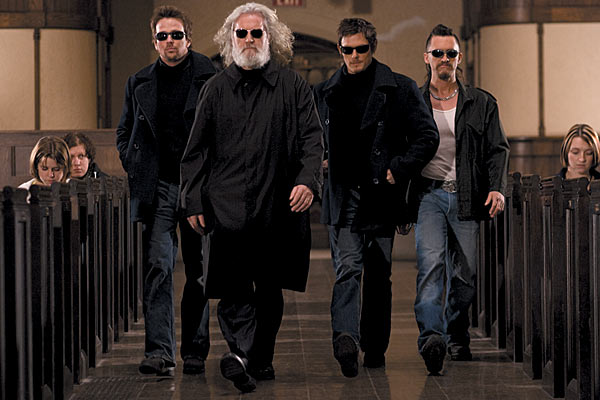
First up, let me just state the obvious: I love The Boondock Saints. As a film, it’s a great piece of entertainment, if you look at it the right way. It’s not meant as a serious discussion of the benefits and consequences of vigilantism, unlike films such as The Dark Knight. It’s a film about blowing away bad guys with the vicarious thrill of unrestrained righteousness. Lead actors Reedus and Flannery are great, while the supporting cast do a stand up job with their material. Willem Dafoe, as agent Paul Smecker, is a mincing delight in his role of the flamboyantly gay FBI operative, and of all the characters in the original film, he makes me smile the most. Rocco, meanwhile, swears and curses and overacts his part so much it’s either a joke on us by Troy Duffy, or a serious miscalculation by the production team. David Della Rocco doesn’t give us any light and shade with his performance; he’s so high strung and enthusiastic he threatens to derail the film entirely. Although, if your film features any appearance by a couple of major porn stars (Ron Jeremy and Jeanna Fine, for those keeping score), you know that restraint and respectability went out the window ages ago.
The Boondock Saints works on a number of levels, the most obvious being that it’s a vigilante film with plenty of guns. This will assure a large male audience will enjoy the more action-y parts of the film. But if you dig a little deeper, beneath the veneer of crass dialogue and in-your-face editing, Saints has a lot going for it with its narrative. The ethical and moral dilemmas thrown up by Duffy’s crazy script are only touched on in a few key sequences, and even then punctuated by jokes and ribald humour, but they are there, which indicates a more intellectual screenplay than it seems on first viewing. Secondly, the main cast work so well together, it’s impossible not to smile while watching. Depending on your tolerance for crudity and violence, you may find yourself really “getting into” this film in a way you would be horrified at, at any other time. Yes, Boondock Saints is over the top, yes it’s often derivative and clichéd, but I think that’s the point. A lot of critics regard this film as a miasma of ideas and concepts all vying for equal screen time to the detriment of the overall narrative: I disagree. I tend to think each aspect of this film, from its examination of vigilantism, down to investigative forensic work by the FBI, even to the old kill-or-be-killed chestnut, complements one another, in a strange kind of way.
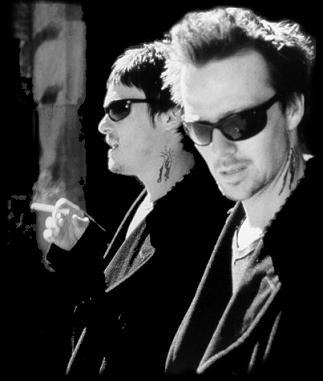
But where The Boondock Saints succeeds in its bravura methodology and cataclysmic browbeating of the audience with guns and bloodthirsty violence, All Saints Day drops the ball so badly it cannot possibly live up to the expectation it inherited. An mentioned, the majority of the original cast return (except those who’ve moved on or been killed) and appear to be quite confused with exactly what the point is. Norman Reedus and Sean Patrick Flannery slip neatly back into their Irish skins again, although due to the script being completely unworkable as an entity, they lack any spark or chemistry together. In fact, throughout the film they almost appear to be annoyed with each other. Rocco’s replacement, Romeo, played by a toothy Clifton Collins, isn’t a patch on Rocco himself, and his introduction is so badly played it reads like a join-the-dots “let’s introduce a crazy new character” scripting session. Poor Julie Benz is badly miscast (I loved her work on Dexter, and she wasn’t the worst thing about Stallone’s most recent Rambo adventure) as Eugine Bloom, a woman that couldn’t really earn an FBI badge if she behaved like that at Quantico. Bloom is weird, and not a good kind of weird like Smecker was. Her character is all over the place, and is in no way able to be a believable person. Duffy has effectively taken the Smecker character quirks and transplanted them needlessly into a female. Why? No idea, and it fails to click with this viewer.
On a positive note, a back-story arc involving the MacManus patriarch, Noah, is shown to us, and of all the scattershot ideas floating through All Saints Day, this is the most interesting and well defined. Unfortunately, it also gives away the twist ending (an ending which itself is so idiotic it almost defies description), so it’s hardly the best thought out concept, but at least Duffy tried. Unfortunately, all Duffy’s efforts are in vain with the final act convincingly undoing any and all good material in the film: a confrontation between hard-ass Noah and the puppet-master criminal they’re fighting against. While watching said confrontation, I was reminded a lot of the Bride/Bill chat-fest at the end of Kill Bill Part 2, in which a lot of stuff is said but nothing interesting is talked about. Connolly and a very tired looking Peter Fonda have next to no chemistry at all, and their “conflict” with each other feels forced and silly compared to the rest of the film.
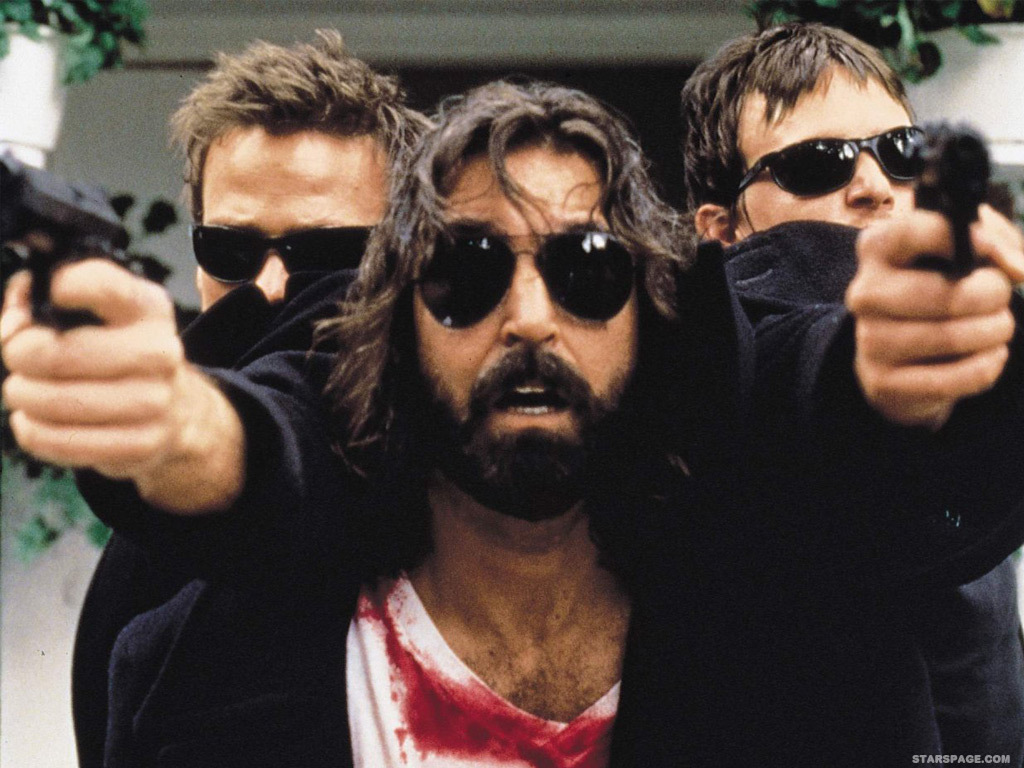
To be more succinct in my arguments, I’ll say it simply: Troy Duffy took everything that was good about the first Saints foray, pumped it full of adrenaline and let rip with his scripting. He took everything that didn’t work in the first film and did it again. Unfortunately, where the first film was like a cinematic hand-grenade, the sequel is merely an also-ran, a shadowy wish-list of ideas and concepts that Duffy couldn’t bring into a cohesive whole.
For me, it’s a no-brainer. All Saints Day is a complete miasma, a disaster of film-making that will surely spell the end of Troy Duffy’s career, which was pretty much over prior to making the second film anyway. Instead of trying to take the MacManus brothers in a new direction, Duffy has rehashed the original film (even finding new ‘characters’ that can replace the old versions and hoping nobody will notice! Duh!) to the point where everything in All Saints Day is irrelevant. Sloppy scripting, diabolical acting and a genuine hatred of a viewing audience, infused by Duffy’s ego-driven desire to obliterate sense and logic on screen, means the winner of this battle of vigilantism has to be the brilliant original, The Boondock Saints.


